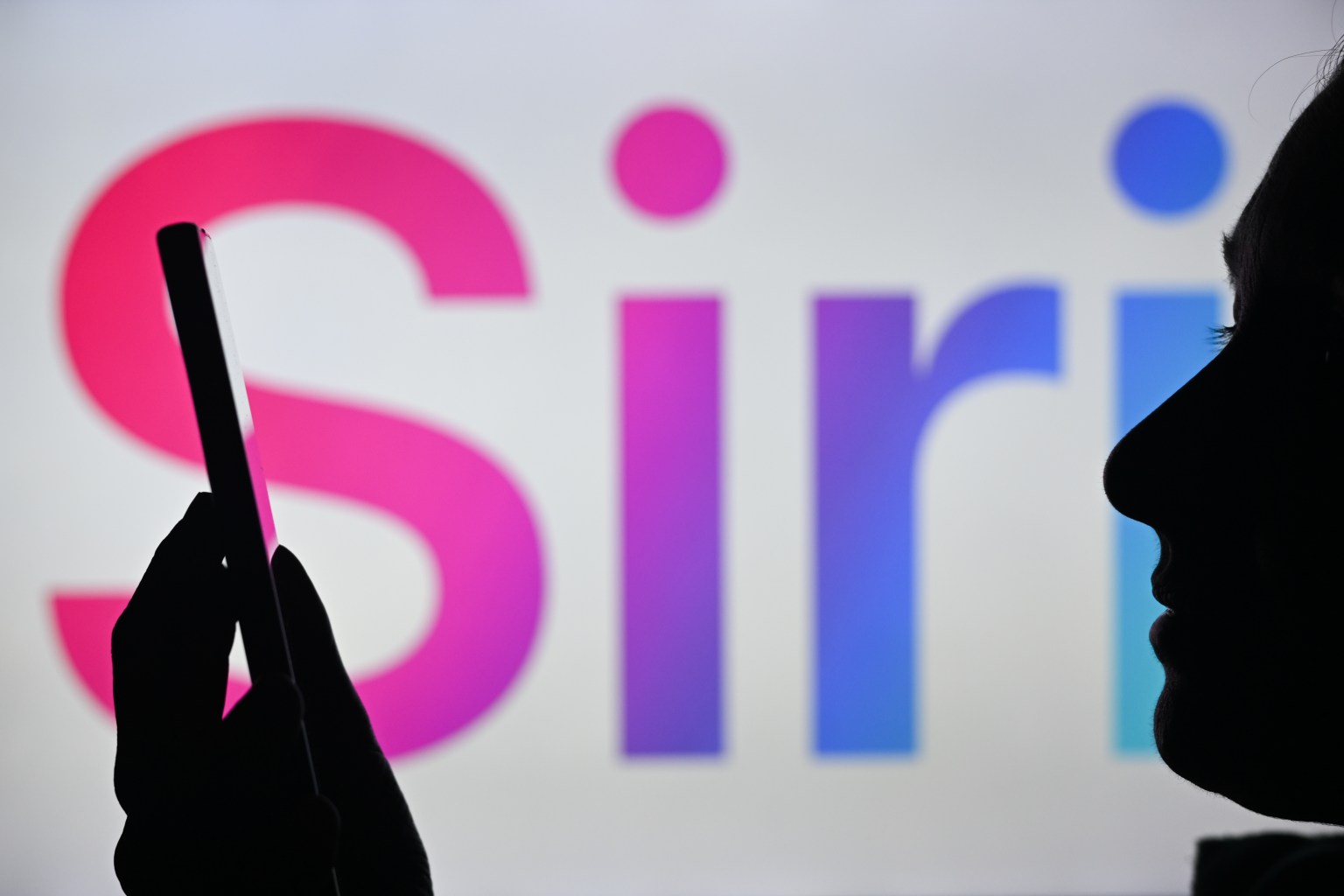Synopsis
The article explores the privacy controversies surrounding voice assistants, focusing on Apple’s $95 million Siri settlement. It reveals how unauthorized voice recordings, accidental activations, and potential data exploitation have raised ethical and legal concerns. The lawsuit exposed Apple’s practice of human contractors reviewing sensitive recordings, sometimes linked to user metadata, without sufficient consent. Key issues include false triggers capturing private conversations, suspicions of data use for targeted advertising, and violations of consent laws like GDPR.
Apple’s response involved significant privacy reforms: offering opt-outs for data collection, reducing human involvement, prioritizing on-device data processing, and improving user control over stored data. These reforms set a precedent for the industry, emphasizing consent, transparency, and data minimization. The article stresses the importance of continued vigilance and regulatory oversight as AI assistants evolve.
Voice assistants like Siri have recently come under intense scrutiny for potentially overstepping privacy boundaries. Apple’s landmark $95 million settlement reveals critical insights into the complex world of AI surveillance
Key Privacy Concerns
The Siri lawsuit has brought significant attention to the privacy risks associated with voice assistants, challenging the perception of such tools as passive and secure. The case highlights critical concerns surrounding data security, consent, and commercialization of personal information. Below is a detailed breakdown of the key issues exposed:
1. Unauthorized Recordings and Human Oversight
A major revelation in the lawsuit was the practice of employing contractors to review Siri’s voice recordings as part of Apple’s quality control and machine learning improvements. However, these contractors reportedly had access to highly sensitive information, including:
Medical Conversations: Discussions involving private health details, which could be considered protected health information (PHI) under laws like HIPAA in the U.S.
Personal and Intimate Details: Recordings captured during private moments, including discussions about relationships, finances, and other confidential matters.
Lack of Anonymization: Reports suggested that some recordings were linked to user accounts or metadata, raising concerns about the lack of effective anonymization in Apple’s data review process.
This practice raised ethical and legal concerns, as users were often unaware their recordings were being reviewed by human contractors. The lack of clear disclosure and the potential for sensitive data exposure led to significant backlash.
2. Unintended Activations (“False Triggers”)
Another core issue was the frequent accidental activation of Siri, known as “false triggers.” Siri could be mistakenly activated by sounds resembling its wake phrase (e.g., “Hey Siri”), leading to unauthorized recordings. Key points of concern include:
Non-Consensual Data Capture: Users were not aware that their conversations were being recorded, breaching expectations of consent and privacy.
Private Environments: False triggers occurred in sensitive environments such as bedrooms, hospitals, and workplaces, capturing conversations not intended for recording.
Data Retention: Once captured, these audio files were stored and, in some cases, reviewed without explicit permission from the user, further compounding privacy concerns.
The lawsuit argued that Siri’s failure to distinguish intentional commands from accidental activations contributed to the violation of user privacy rights.
3. Targeted Advertising and Data Exploitation Risks
Perhaps the most controversial revelation was the suspicion that voice data might have been used for targeted advertising, despite Apple’s public stance on user privacy. Key allegations included:
Ad Targeting After Private Conversations: Some users reported receiving targeted advertisements related to topics they had recently discussed in private conversations, fuelling concerns about unauthorized data exploitation.
Inconsistencies with Privacy Policies: Apple has marketed itself as a privacy-centric company, emphasizing features like on-device processing and minimal data sharing. However, the lawsuit raised questions about whether Siri data was indeed being used in ways contradicting Apple’s privacy policies.
Lack of Transparency: Users were often unaware of how their voice data was processed, stored, or shared. The perception of a secure and passive voice assistant was contradicted by reports suggesting data exploitation for commercial gains.
Legal and Ethical Implications
The Siri lawsuit raises broader questions about the accountability and transparency of voice assistant technologies. Key legal considerations include:
Violation of Consent Laws: The unauthorized recording and potential data usage may violate consent laws like the General Data Protection Regulation (GDPR) in Europe, which mandates explicit consent for data collection and usage.
Inadequate Disclosure: Apple’s privacy policies were criticized for not clearly explaining how voice data might be handled, including human review and the possibility of commercial use.
Breach of Trust: Apple’s marketing as a privacy-focused company came under scrutiny, with critics arguing that the data practices revealed by the lawsuit contradicted this image.
Systemic Risks
AI assistants introduce significant privacy challenges that extend beyond isolated incidents to systemic risks, fundamentally altering how personal data is collected, processed, and potentially exploited. These risks can have far-reaching consequences for both individual privacy and societal norms. Here’s a detailed breakdown of the systemic privacy risks associated with AI assistants:
1. Potential for Data Misuse by Third Parties
AI assistants often collect vast amounts of voice data, which, if improperly managed, can be misused by third parties, including contractors, advertisers, and even malicious actors. Key concerns include:
Third-Party Contractors and Data Access:
Many companies outsource data analysis and quality control to third-party contractors.
These contractors may have access to raw voice recordings, potentially including sensitive personal information such as health discussions, financial data, and private conversations.
Lack of strict data governance policies can lead to unauthorized sharing or leakage of personal information.
Data Sharing with Advertisers:
Some AI assistants gather behavioural data to improve user experiences, which can be repurposed for targeted advertising.
This raises ethical concerns, especially when users are not explicitly informed that their voice data could be used for marketing purposes.
Even anonymized data can sometimes be reverse-engineered to identify individuals through cross-referencing with other datasets.
Risk of Data Breaches and Hacking:
Large datasets of voice recordings and associated metadata can become attractive targets for cybercriminals.
If breached, this data could be exploited for identity theft, blackmail, or surveillance purposes.
Example: The Siri lawsuit highlighted how contractors could access sensitive conversations during the review of audio data, raising concerns over insufficient third-party oversight.
2. Risk of Unintentional Eavesdropping
AI assistants often rely on “wake words” to activate, such as “Hey Siri” or “Alexa.” However, unintentional activations—also known as “false triggers”—can result in the unauthorized capture of private conversations, creating significant privacy concerns:
Accidental Activations and Surveillance Risks:
False triggers can lead to recording private conversations without the user’s knowledge.
This can occur in sensitive environments such as bedrooms, offices, or medical facilities, capturing confidential discussions.
Users often remain unaware that a recording has occurred, as the activation sound or indicator may not be obvious.
Continuous Listening Misconceptions:
While AI assistants are designed to listen only after the wake word is detected, technical flaws or design choices can result in prolonged, unauthorized listening periods.
Even if data is not actively transmitted, the local storage of voice data poses privacy risks if accessed later without consent.
Insufficient Consent and Control:
Many users assume AI assistants are entirely passive until activated.
The lack of clear, user-friendly options to control or delete recordings exacerbates the issue.
Example: Users have reported receiving personalized advertisements after discussing topics near their voice assistants, raising concerns about passive eavesdropping.
3. Possibility of Context-Based Discrimination
AI assistants can inadvertently contribute to discrimination by relying on biased datasets and profiling mechanisms in their operations. This issue emerges in two key ways:
Bias in Voice Recognition and Language Processing:
Voice assistants may struggle to accurately recognize accents, dialects, and speech patterns from diverse populations.
This can result in unequal service quality, where users with non-standard accents or speech impairments experience poorer performance.
Studies have shown racial and gender biases in voice recognition systems, often due to non-representative training datasets.
Discriminatory Profiling Through Data Inference:
Voice data can reveal personal attributes such as age, gender, ethnicity, and health conditions.
If such data is used for profiling, it can lead to targeted advertising or differential pricing based on inferred characteristics.
For example, an AI assistant could infer health conditions from voice patterns and relay that information to insurance companies, potentially affecting coverage or premiums.
Lack of Transparency in Data Handling:
Users are often unaware of how AI systems make decisions or what data factors into those decisions.
This opacity makes it difficult to detect or challenge discrimination resulting from data misuse.
Example: AI assistants using voice data to personalize services might unintentionally reinforce existing social biases by targeting certain groups for specific types of ads or services.
Broader Ethical and Legal Implications:
The systemic risks associated with AI assistants raise important questions about ethics, data governance, and regulatory oversight:
Informed Consent: Users often lack full awareness of how their voice data is used, stored, or shared.
Data Minimization: Companies should prioritize collecting only the necessary data for functional purposes rather than gathering extensive voice data.
Accountability: Clear frameworks are needed to hold companies accountable for third-party misuse and discriminatory outcomes.
Regulation and Compliance: Existing privacy laws, such as GDPR and CCPA, impose consent and transparency requirements, but enforcement remains inconsistent.
Apple’s Response
Following the revelations from the Siri privacy lawsuit and public backlash over unauthorized voice data collection, Apple implemented several significant privacy reforms aimed at restoring user trust and ensuring stronger data protection. These changes reflect a shift toward more transparent data practices and enhanced user control. Here’s a detailed breakdown of Apple’s privacy reforms:
1. Allowing Users to Opt-Out of Data Collection
A pivotal change in Apple’s privacy approach was giving users the ability to opt out of Siri data collection entirely. This reform addressed concerns about consent and user control over personal data.
User Choice and Consent:
Apple introduced a clear option for users to decline participation in Siri’s data analysis process.
During the initial setup or after software updates, users were explicitly asked whether they wanted to share their audio data with Apple for performance improvements.
Granular Control:
Users gained the ability to manage their data preferences through the “Siri & Search” settings.
They could choose to disable Siri recording storage without sacrificing the assistant’s core functionality.
Privacy-First Design:
Apple reinforced its commitment to privacy by emphasizing that opting out would not affect the overall performance of Siri.
This approach marked a departure from many other tech companies that often link data sharing with feature accessibility.
2. Restricting Audio Recording Access
Apple also implemented stricter controls over how audio recordings were accessed and reviewed, limiting potential privacy breaches.
Elimination of Widespread Human Review:
Apple scaled back its practice of employing third-party contractors for reviewing Siri audio data.
Only Apple employees, rather than external contractors, were permitted to review audio data under stricter oversight.
Tighter Oversight on Data Handling:
Apple improved its data handling policies, ensuring that any reviewed audio data was anonymized and not linked to Apple IDs or other identifiable information.
The company also limited the duration for which audio files could be stored and reviewed.
Minimized Human Involvement:
Apple shifted towards automated quality control processes, reducing the role of manual review and enhancing data privacy.
3. Using Computer-Generated Transcripts
To further minimize privacy risks, Apple introduced the use of computer-generated transcripts instead of storing actual audio recordings for performance analysis and quality improvement purposes.
Text-Based Data Review:
Instead of retaining audio clips, Apple began relying on automatically generated transcripts of user interactions with Siri.
These transcripts provided sufficient data for improving Siri’s language understanding while avoiding the retention of sensitive voice recordings.
On-Device Processing Focus:
Apple emphasized on-device processing for most Siri tasks, reducing the need for cloud-based data storage.
This approach meant that much of the data processing occurred directly on the user’s device, minimizing data exposure risks.
Limited Data Retention:
Apple shortened the retention period for computer-generated transcripts and ensured they were decoupled from personally identifiable information.
4. Deleting Inadvertently Captured Recordings
Another significant reform was the introduction of mechanisms to delete audio data captured due to false triggers or unintentional activations.
Automatic Deletion of False Triggers:
If Siri was activated accidentally, Apple committed to deleting those recordings automatically without storing or analyzing the data.
This addressed one of the primary concerns raised in the lawsuit—Siri’s accidental activations leading to unauthorized data capture.
User-Initiated Deletion:
Apple introduced the ability for users to manually delete Siri interaction history from their devices.
This feature, accessible through Settings > Siri & Search > Siri History, allowed users to erase stored data on demand.
Transparency and Reporting:
Apple improved transparency by clearly communicating how voice data is handled and when it might be retained for product improvement purposes.
The company also released privacy reports detailing how Siri data was managed, aligning with broader transparency efforts across its ecosystem.
Broader Implications and Industry Impact:
Apple’s privacy reforms set a precedent for other companies in the voice assistant industry, emphasizing:
Consent and Control: Users should have clear control over their data-sharing preferences.
Minimized Data Collection: Collect only the data necessary for core functionality, avoiding excessive data retention.
Transparency: Clear communication about data practices and user options.
Apple’s actions also prompted industry-wide conversations on responsible AI practices, influencing how voice data is collected, stored, and reviewed across competitors like Google Assistant and Amazon Alexa.
In conclusion, while AI assistants provide significant convenience and enhance daily productivity, they also introduce complex privacy challenges that cannot be overlooked. The systemic risks of unauthorized data collection, unintentional eavesdropping, and potential data misuse highlight the importance of user awareness and informed consent. Apple’s privacy reforms, including data minimization, restricted access to recordings, and enhanced user control, mark a positive step toward safeguarding personal data. However, as always-listening technologies continue to evolve, users must remain vigilant about their privacy rights, and companies must prioritize transparency, accountability, and ethical data handling to maintain public trust in the digital age.




